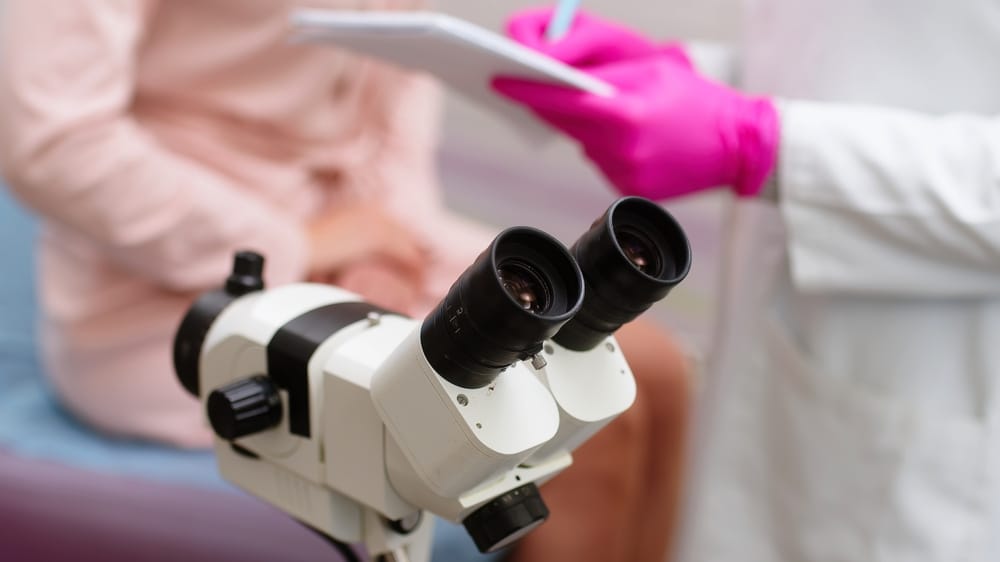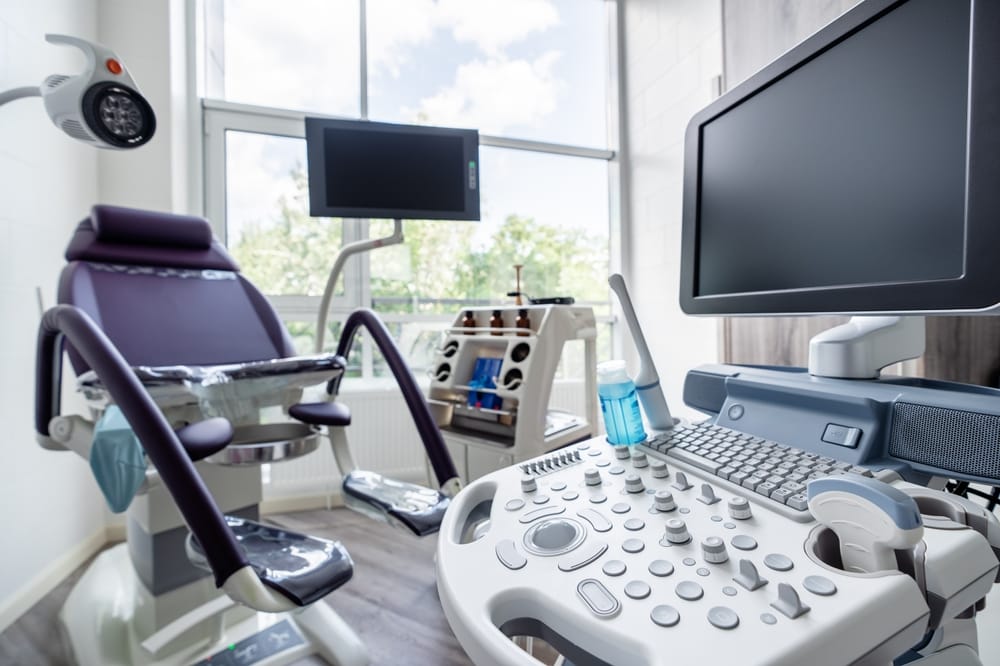
Most women will visit a gynaecologist from time to time to ensure their health is in order and to prevent potential health issues.
And while we women know how important this appointment is, we still tend to postpone it. For most of us, it’s uncomfortable to undress in that environment for someone.
To make your visit more pleasant, here are a few things to avoid when going to the gynaecologist…
1. Don’t panic
Feeling nervous before your visit to the gynaecologist because the thought of exposing yourself to your doctor feels totally uncomfortable? You’re definitely not alone – many women feel the same way. Honestly, there are few things more uncomfortable than sitting in a gynaecological examination chair with spread legs while someone examines you. But here’s the thing: these exams are crucial because they are the best way to detect and treat sexually transmitted diseases or cancers like breast and cervical cancer in the early stages.
So, you need to overcome your fear. Remember, your doctor sees many naked women every day – it’s just part of their job. They’re not looking at things like muscular thighs, painted toenails, or whether you’ve shaved or not. They are focused on your health. And that’s something you can remind yourself of when you start feeling self-conscious. Your doctor is not concerned about how you look – they are only there to ensure you are healthy.
2. Showing up without showering?
Even though your doctor doesn’t care if you shave down there or have hair, they naturally don’t want to examine someone who hasn’t taken care of themselves.
This not only makes your doctor’s job easier, but it also makes you feel better. So, wear fresh underwear that you feel comfortable in. It’s about feeling good during the appointment.

However, many gynaecologists do not recommend showering at all, as it can disrupt the natural balance of vaginal flora and acidity. Instead, it is advised to rinse or wash the vagina with warm water only before a pelvic exam. Furthermore, it is best not to use vaginal creams or foams 48 hours before the exam.
3. Concealing symptoms
Have you been feeling like something isn’t right down there for a while? Maybe you have constant itching but don’t want to mention it because it feels too uncomfortable? In this case, you need to step out of your comfort zone because your doctor can only help you if you are honest with them.
There’s no point in hiding symptoms. If something doesn’t feel right, talk to your doctor about it. They are there to help, not to judge.
4. Avoiding sex
Some experts recommend abstaining from sex for up to 24 hours before a gynecological appointment. Sex can sometimes cause skin irritation, which can hinder the ability to accurately diagnose certain conditions.
While condoms can protect against infections, some types contain spermicides that can affect vaginal pH. Additionally, it’s best to avoid using personal lubricants before the appointment to help ensure the accuracy of cervical screening tests.
4. Don’t Google
You’ve spent hours online searching for answers to your symptoms, and now you’re ready to give your doctor a long explanation of everything you’ve read and all the diseases you think you have.
But here’s the thing: your doctor is the expert, not Google. While it’s natural to want to understand what’s going on with your body, your doctor is trained to make diagnoses. They don’t need you to guide them through your internet findings. Trust that they are doing their job. Let them lead the conversation and tell you what they think is going on. After all, that’s what they’re there for.
5. Having questions but not asking them
It’s normal to have questions, but by holding them back, you may feel insecure. Don’t be afraid to ask your gynaecologist anything you’re concerned about.
Do you have a lot of questions about your body, contraception, or future pregnancy, but feel too embarrassed to ask? Don’t worry! Your doctor is the perfect person to talk to about these things. Be brave and discuss what’s important to you. Remember that every doctor is bound by confidentiality, so you don’t have to worry about them sharing your questions or concerns with anyone else.
6. The chair
Find the sight of the gynaecological chair a bit intimidating? At first glance, especially during your very first visit, it can seem quite daunting. But hey, it’s just a chair, so don’t be discouraged. When you’re in the right position, your stomach can be thoroughly examined. That’s why it’s important to stay relaxed and not tense up.

The examination should not be painful, so you don’t need to be anxious. However, your doctor will let you know if you’re too tense or not in the right position.
Here are a few tips to help you stay comfortable during the examination…
7. Slide forward
Gynaecologists often have to remind patients multiple times to slide forward in the chair.
To make it easier for your doctor, make sure you’re sitting far enough forward so they can conduct the examination properly. Just shift your hips toward the doctor and slide forward a bit. This ensures a smoother and more effective examination.
8. Gynaecologist for the first time
For a young woman who has never been to a gynaecologist, it may be a good idea to make an appointment – but that doesn’t mean you have to undergo a gynaecological exam right away.
You can also just have an initial consultation with the gynaecologist. It is not assumed that an exam will take place during the first visit, so it’s important for younger women to understand this. Additionally, it’s advisable to bring a partner or friend for support during the first appointment.
9. Write down your questions
For women who have visited the gynaecologist before, there is a handy tip that some gynaecologists recommend: prepare by writing down the questions you want answered so you don’t forget to ask due to stress.
Also, do not choose your gynaecologist based on gender, unless you have specific reasons to do so.
10. Remove your tampon
Remember to always remove your tampon after use.
“A rare situation that can happen is when someone forgets a tampon for a few days. This can cause bacteria to grow, leading to a strong, unpleasant odor. But it’s not the body’s fault – it’s the tampon. Once you remove it, the problem is easily resolved. A forgotten tampon can smell pretty bad, but it’s an easy problem to fix. I also don’t think it’s something to be ashamed of,” says a gynaecologist.
Are you afraid of going to the gynaecologist? What is your biggest fear?
Are you worried about having to undress, or are you perhaps concerned about discovering a health issue?
Do you still go for regular check-ups despite your fears? If you want, share your thoughts with us in the comments on Facebook!




